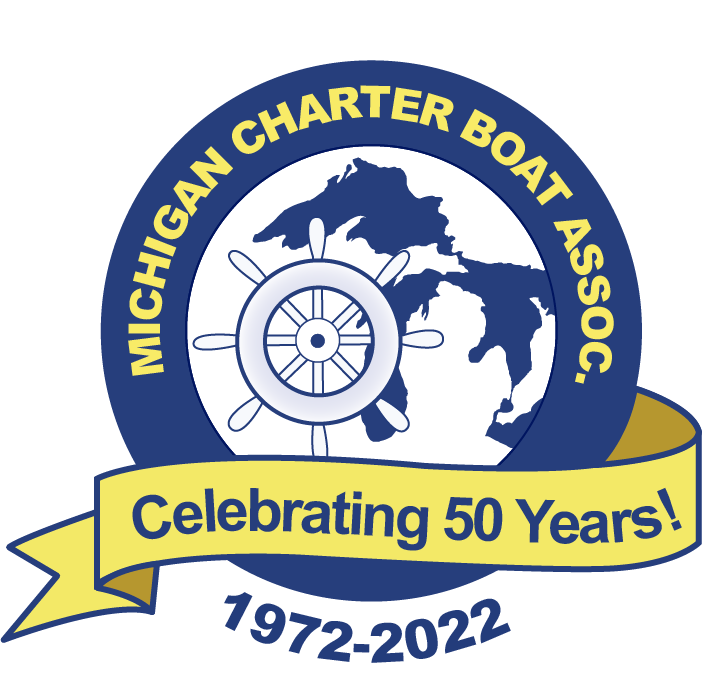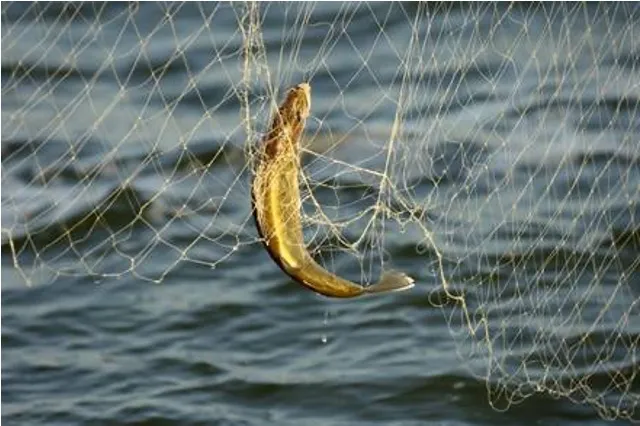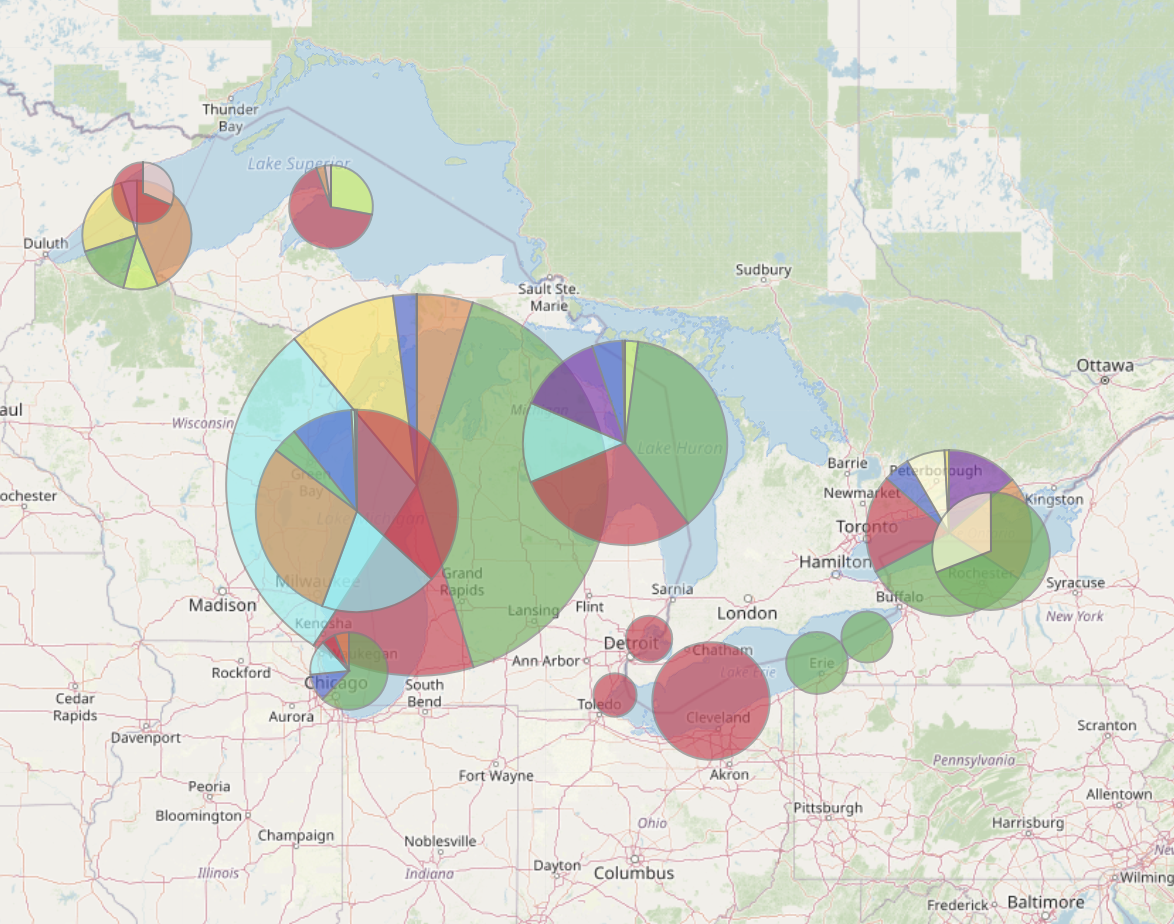LATEST NEWS POSTS
Tribe claims they never agreedMichigan’s largest Native American tribe, the Sault Ste. Marie Tribe of Chippewa Indians, is challenging the legal agreement governing fishing rights in Michigan’s portion of the Great Lakes. They argue that as a sovereign nation, they cannot be compelled to follow rules created without their consent. The tribe has filed an appeal in the U.S. Sixth Circuit Court of Appeals seeking a trial to contest the latest Great Lakes fishing decree. This decree outlines how five Native American tribes, along with federal and state governments, share access to Michigan’s Great Lakes fish. Covering nearly 19,000 square miles in lakes Michigan, Huron, and Superior, the agreement stems from the 1836 Treaty of Washington, in which Michigan tribes retained fishing rights. According to Bridge Michigan, speaking on Wednesday, Sault Chairperson Austin Lowes emphasized the tribe’s treaty right to determine when, where, and how its members fish. He criticized the requirement for Michigan’s agreement on fishing rights that the tribe originally ceded. Tribe seeks expanded fishing rights with reduced state oversight.The Sault tribe’s legal action reflects ongoing tensions in rewriting fishing rules due to changes in the lakes caused by invasive species and other factors. With declining whitefish populations and scarce salmon species, various fishing groups vie for access to diminishing resources. The Sault tribe seeks expanded fishing rights and territories with reduced state oversight. However, the latest fishing decree, negotiated without their significant involvement, has led to disputes. While the decree offers new fishing opportunities and gear allowances,
From the Desk of Kendra KozlauskiThere have been some recent changes to charter reporting that I wanted to highlight again. We also have some new requirements for Inland Guides which will affect some of you, in both licensing and reporting. First, as most of you are already aware, charter reporting has moved to twice-monthly as of January 1, 2024. Your reports are now due by the 2nd and 4th Wednesday of each month by 11pm. The trips included in your report will span the previous due date (Wednesday) to the Tuesday before the current due date. For instance, the report due on Wednesday, March 27 will include trips taken from Wednesday, March 13 to Tuesday, March Please keep current on reporting and remember you must report all intervals, even if you are not fishing those intervals. Second, there are new requirements (per Public Act 220 of 2023) that start March 1, 2024, that require anyone fishing inland waters to acquire an Inland Guide License and report their guided trips monthly. This will directly affect some of you. If you fish ANYWHERE besides the Great Lakes or Great Lake Connecting Waters (defined as Detroit River, St Clair River, Lake St Clair, and St Mary’s River) you will need to obtain the new Inland Guide license. If you have a valid USCG license, your Inland Guide license fee will be waived. Charter reporting has moved to twice-monthly as of January 1, 2024.If you ONLY fish in the Great Lakes or GL Connecting
The Great Lakes Fish Stocking Database (GLFSD) is a continuation of a project initiated by the Great Lakes Fishery Commission (GLFC) to provide fishery managers, scientists and other interested parties with access to a centralized, comprehensive database of all fish stocked into the Great Lakes from artificial propagation. In 1991, the GLFC created the Fish Stocking Database Management System (FSDMS) to meet this need. GLFSD today is an online system that enables users to visualize data in many new ways and allows agency staff to make real-time corrections to data. Encompassed in this process was a need for a basic level of standardization of data fields to facilitate the visualization, which was accomplished through many back and forth conversations between the new GLFSD development team and agency stocking liaisons. This work was completed as part of a Science Transfer Project with major partners on the development team from Ontario Ministry of Natural Resources and Forests in Owen Sound, USFWS at the Green Bay Fish and Wildlife Conservation Office, and the Great Lakes Fishery Commission, along with input from stocking data liaisons and a steering committee comprised of lake managers and other end users. GL Fishing Stocking Database
From the desk of Secretary John Giszczak After talking to a number of captains, I realized there are still a number who are not claiming the “road” fuel tax for their charter operations. It’s a fairly easy procedure albeit a little time consuming on your part but well worth it. To qualify “charter boats must have certificate of inspection from the DNR” showing you are a commercial vessel. The entire process must be done online. The way to sign up for the rebate is to call the Motor Fuel Tax Division in Lansing 517- 636-4600. Once you are registered, the whole process is online only. www.michigan.gov/taxes/business-taxes/motor-fuel You will be required to scan your receipts (must be scans of the original invoices) and submit them on the state website – You must file a refund claim within 6 months of the date of purchase. If you trailer your boat and purchase fuel from a gas station I don’t know if you qualify but the folks in Lansing will tell you how, if it’s possible. My fuel is purchased at a marina with a detailed receipt, name of business, address, phone, exact amount of gallons purchased, marked “paid in full”, signed and dated by the marina. Most marina fuel docks provide similar fuel invoices. For fuel purchased January 1, 2024 and after – Gasoline rebate is $.30 per gallon. The people that staff this division are very helpful and actually answer the phone. They will guide you through the registration and submission
T he Fishing Decree Takes Effect March 1st. Updated guidelines for the co-management of fishery resources in parts of Michigan’s Great Lakes are now in effect for the next 24 years. The new Great Lakes Fishing Decree was approved on August 24, 2023, by the U.S. District Court for the Western District of Michigan. In the months since the decree’s signing, the State of Michigan and tribal governments have been preparing to implement its provisions. This decree is necessary because five tribes – the Bay Mills Indian Community, the Sault Ste. Marie Tribe of Chippewa Indians, the Little Traverse Bay Bands of Odawa Indians, the Grand Traverse Band of Ottawa and Chippewa Indians, and the Little River Band of Ottawa Indians – reserved fishing rights in the 1836 Treaty of Washington. Those rights were affirmed by federal courts more than four decades ago, resulting in the need for a co-management framework that allows for the sharing of the fishery resource. This decree is the third since 1985, and each one has included a fishery management structure that dictates who can fish where, when, and how, and what can be brought home or sold. The most recent iteration includes many updates, but the areas that can be fished by tribal commercial fishers and the reporting requirements for the fishing industry are notable provisions that have taken time to implement. “Tribal fishing regulations needed to be updated to ensure they are consistent with the changes outlined in the new decree,” said Dave
If you’re interested in talking about fisheries management with the MDNR, mark your calendar for “Conversations and Coffee” events taking place this spring. These virtual events – great opportunities to meet with DNR fisheries managers and biologists, discuss local issues and management activities, and get specific questions answered – are scheduled for: Northern Lake Michigan Management Unit: Tuesday, March 12, 7 to 8:30 p.m. Central Lake Michigan Management Unit: Wednesday, March 13, 5 to 7 p.m. Lake Superior Management Unit: Thursday, March 14, 6:30 to 8 p.m. EDT. Lake Erie Management Unit: Wednesday, April 3, 7 to 8:30 p.m. Lake Huron Management Unit: Wednesday, April 3, 6 to 7 p.m. Southern Lake Michigan Management Unit: Tuesday, April 9, 6:30 to 8 p.m.
- ← Previous
- 1
- …
- 3
- 4
- 5
- Next →






